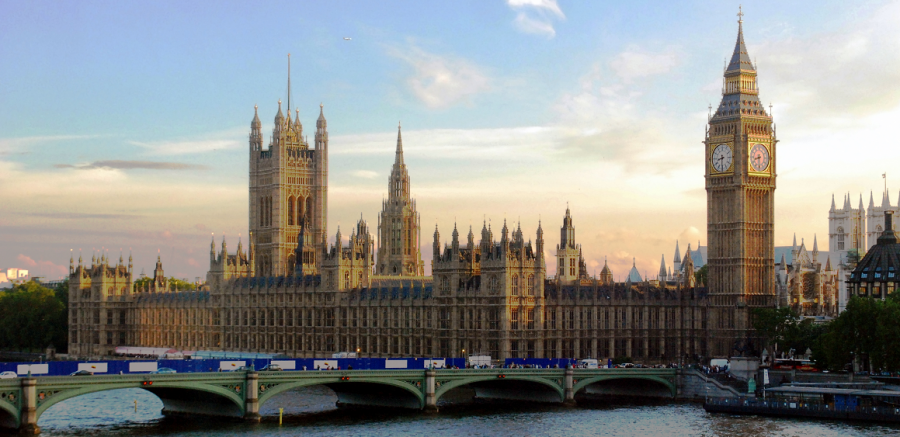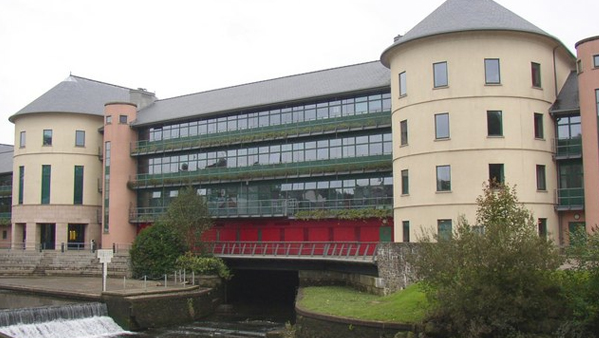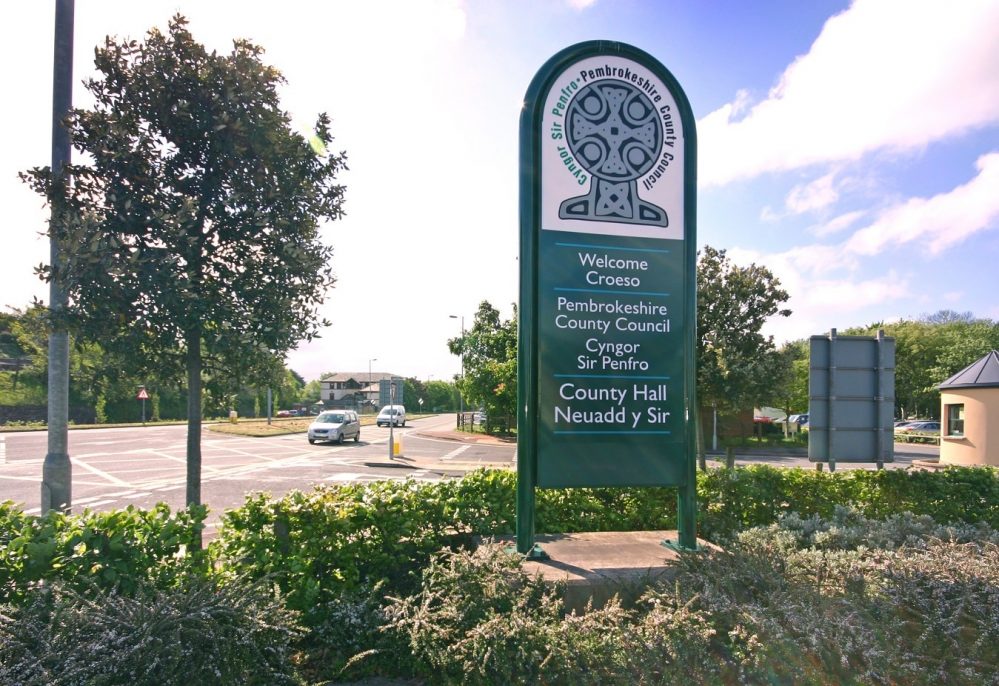Politics
Call to replace the Lords

OVERHAULING Parliament’s London-dominated second chamber would help empower the UK’s nations and regions, writes Willie Sullivan a senior director at the Electoral Reform Society.
It’s been a year since Boris Johnson’s victory in the 2019 general election, an election won with a commitment to ‘level up’ those communities left behind.
Since then, our politics has been shaken by a pandemic that has put pressure on the already strained constitutional settlement that holds the nations and regions of the UK together.
We’ve seen attention turned to local and regional government as well as the devolved administrations. We’ve seen clearly how the over-centralising nature of Westminster can hamper and undermine public trust. The video of Andy Burnham first hearing news of Greater Manchester’s Covid funding settlement at a live press conference will go down as a low point in Britain’s patchwork devolution framework.
This is all set to the backdrop of declining faith in our politics. At the same time as the PM was returning to Number 10 last winter, polling for the Electoral Reform Society showed that just 16% of the public believe politics is working well in the UK – and only 2% feel they have a significant influence over decision-making.
For a government publicly committed to a levelling up agenda, this democratic malaise must serve as a warning: it will take more than economic investment or shiny new infrastructure to remedy the feeling of powerlessness that many feel outside of Westminster.
Tackling that will require some long-overdue reform. The calls for a clear framework for devolution in the UK have become impossible to ignore in recent months. Even areas of England with mayors felt sidelined this year, but the picture was even worse elsewhere – with zero guarantees that local people would be consulted on changes that would affect their lives immeasurably.
There’s a good way to start empowering the UK’s nations and regions: overhauling Parliament’s unelected second chamber.
Abolishing the outdated and unaccountable House of Lords offers a chance to rebalance politics away from Westminster – and create a representative Senate of the Nations and Regions.
Recent Electoral Reform Society analysis found that nearly a quarter of peers are based in London, compared to just 13% of the UK public. Over half – 56% of peers – live in the capital, or the east and south-east of England, while peers in the east and west Midlands make up just 6% between them – leaving many areas in which the Conservatives won seats in the so-called ‘red wall’ woefully underrepresented.
It should be said, this is only peers we know about: more than 300 refuse to state even the country they live in (some live overseas), and hundreds more do not even provide a direct email address for people to get in touch and stand up for their areas.
All this undermines the government’s stated intention to ‘level up’ the regions, when we have a chamber that is skewed towards one patch of England.
Reforming this London-dominated second chamber is a rare issue that is highly popular across all parties. 71% of the UK public back an overhaul of the House of Lords, research showed this year. The issue cuts across Britain’s divides, with an overhaul backed by a majority of those who voted Conservative or Labour in the 2019 general election, and those who voted Leave or Remain in the EU referendum.
As well as levelling up representation – with peers elected using a fair, proportional voting system – a genuinely accountable second chamber could establish a guaranteed voice for the regions of the UK, to speak as one, to scrutinise legislation and our constitutional settlement with clear communities in mind. The UK remains one of the most centralised countries in Europe – and the archaic, power-hoarding set-up in Westminster has a big role to play in why this is.
The pandemic has shown just how important it is for those outside the capital to be truly heard. There are many reasons why voters had more confidence in their governments’ Covid responses more in Wales and Scotland, but having a stake – being genuinely ‘in it together’ makes a big difference.
This is a challenge to all parties, from Boris Johnson as he tries to plot a path for recovery for the UK, to Keir Starmer as he begins to outline his own view of devolution.
One thing’s clear: the London-dominated House of Lords is undermining the voice of local communities. A Senate of the Nations and Regions could be the gamechanger we need.
Politics
Last-minute council tax lowering to come under spotlight

A CLAIM at last-minute use of reserves was used to lower Pembrokeshire’s council tax increase to avoid senior councillors being defeated during the setting of the council’s annual budget is to come under the spotlight later week.
Pembrokeshire County Council was facing a 16.3 per cent council tax increase when setting the council budget for 2024-’25 in March; that figure dropping to 12.5 per cent after an 11th-hour alternative budget proposal by deputy leader Cllr Paul Miller was narrowly backed.
That drop in the council tax rise was made by using additional reserves of £1.5m, as well as £1m target for council efficiency savings.
Members of the council’s Governance & Audit Committee are, at its April 18 meeting, to consider concerns raised by Councillor Huw Murphy about the budget process following that meeting, along with assurances provided responding to his concerns.
A report for members states: “On March 25 Councillor Murphy raised concerns to the Chair of the Governance & Audit Committee regarding the council’s budget setting process for the 2024-25 budget, and associated issues, which council considered and set at their meeting on March 7.
“The Chair of the Governance & Audit Committee asked the Chief Executive to review those concerns and report to the Committee to provide assurance that there were no procedural failures in the budget setting process.”
Cllr Murphy has written: “An email was sent out on behalf of the Director of Resources on Feb 1 making it clear that no alternative/amendment budget could be presented after Feb 14. However, on March 7 at full council this is exactly what occurred.”
He has raised concerns about why an alternative budget proposal was allowed after February 14, and has asked whether there was sufficient time for the accepted alternative budget to be analysed.
He says his political group advanced a potential budget alternative to use £750,000 in reserve, which was refused, with a maximum of £375,000 offered, along with a later proposal refused, claiming Cllr Miller’s £1.5m proposal may have been submitted just 18 hours before the budget D-day.
In his lengthy document raising his concerns he states: “I am also aware that some ruling group councillors arrived at County Hall very early on March 7 to possibly refine the amendment that was then put before council.
“I form my opinion on becoming aware of a councillor having been contacted repeatedly in an effort to ‘persuade’ him in the weeks before full council to support a council tax of 16.31 per cent who was contacted on two to three occasions on the morning of March 6 and bravely refused to relent and made it clear he could not support a CT of higher than around 12 per cent.
“This councillor is in the ruling group and, in my opinion, his refusal and the refusal of others on the ruling group to buckle to a CT rise of 16.31 per cent caused panic in a Cabinet now facing imminent defeat at full council the next day and as a result they drafted a last-minute alternative/amended budget to appease ruling group councillors who had rebelled.”
The report for members concludes: “There is no evidence of procedural failings in the budget setting process and the legal budget setting procedures have been adhered to. There was sufficient time for officers to properly assess the alternative budget proposed and for the S151 Officer to make a properly informed statement at Council on March 7.”
It is recommended members consider the concerns raised by Cllr Murphy and notes the assurance provided in response to those concerns, and the committee notes that there were no procedural failures in the council’s budget setting process.
Business
Bluestone National Park Resort payments expected to end

A CALL to end a legal agreement for financial contributions associated with the creation of Pembrokeshire’s Bluestone National Park Resort is expected to be backed next week.
In a submitted application to Pembrokeshire Coast National Park on behalf of Bluestone Resorts Ltd, legal firm Red Kite Ltd asks for a cessation of a 2004 Section 106 legal agreement used to pay towards various projects including enhancements to footpaths and bridges.
In a supporting statement says most agreements of this type are time limited, and “today such an arrangement without a timeframe would likely not be considered acceptable by either side.
“However, no such end date was placed on this one. More recently, it was agreed between the parties that the payments would cease in 2025, also known as a ‘statement of common ground’. This is why a formal agreement now has to be made by each of the parties involved.”
The statement says that, since the agreement was made, Bluestone has paid nearly £280,000 through the agreement, adding: “As part of the Statement of Common Ground, it was agreed by Pembrokeshire County Council, Pembrokeshire Coast National Park Authority and Bluestone that a final fee of £113,000 would be paid, spread over 2023, 2024, and 2025 in annual payments of £38,000.”
A report by national park officers, ahead of the Pembrokeshire Coast National Park Development Management Committee meeting of April 24, where it is recommended for approval, says: “The applicant has applied to discharge the Section 106 Legal agreement but the supporting text notes that they applicant is agreeable to making two final payments.
“Having considered the information submitted, officers consider that provided the two final payments are received the legal agreement has served its purpose and can be discharged.
“In order to ensure the two final payments are made, a modification to the Section 106 legal agreement is supported. This decision is supported by Pembrokeshire County Council, who have received a concurrent application which is also recommended by officers for modification.”
The report says the £280,000 figure presented by Bluestone actually amounted to £318,703.87, taking into account a 2023 payment of £38,891.73, with Pembrokeshire County Council’s S106 monitoring officer confirming the contributions have been spent on a range of public rights of way improvements, primarily in nearby Canaston Woods.
Recommending approval, the report adds: “The authority is satisfied that subject to two further payments of £38,000 to be made in August 2024 and August 2025, the obligation no longer serves a planning purpose and can be discharged and as such the obligation should be modified accordingly.”
The 500-acre Bluestone resort near Narberth has, since its opening, contributed to “more than £100 million to local suppliers, £7 million annually into the local supply chain, £13 million annually into the Pembrokeshire economy through its payroll, and more than £1.5 million spent annually on marketing Bluestone and Pembrokeshire.”
Politics
Slurry lagoon near Boncath conditionally approved

AN APPLICATION for a slurry lagoon near the north Pembrokeshire village of Boncath has been conditionally approved by county planners.
A H & V F Picton sought permission for a slurry lagoon and associated works at 230-acre Ty Mawr Farm, a mixed farm of a herd of dairy cattle plus followers, beef cattle, and sheep, some 150 metres north of Boncath.
A supporting statement by agent Cynllunio RW Planning Ltd said: “The proposed development seeks to increase the farms slurry storage capacity to above the five-month storage required by NVZ regulations. The existing slurry store and slurry handling facilities are not adequate to comply with the new regulations.”
It stressed the applicant does not intend to increase livestock numbers on farm as a result of the 48 by 30 metre development.
It added: “The lagoon proposed will have very low banks and as such the proposal will not be visible from the surrounding area. The proposed will be screened by the adjacent building and hedgerow and will have no adverse impact on the landscape in line with relevant policies of the Pembrokeshire LDP.”
One letter of objection to the scheme was received by planners, raising concerns including potential noise, odour, and the impact on property value for their property and properties within the wider village of Boncath.
An officer report said: “It is considered that the location of the development, within a rural setting, is appropriate and sustainable.
“The development allows the operation of the existing farm business and results in positive economic, social benefits and improved welfare facilities. It is considered that sufficient need is evidenced and that the lagoon is justified.”
The application was conditionally approved.
-

 Community3 days ago
Community3 days agoThe Harbourmaster: Special rail excursion draws crowds to Milford Haven
-

 Business15 hours ago
Business15 hours agoBluestone National Park Resort payments expected to end
-

 News1 day ago
News1 day agoDragon LNG ‘monitoring’ scrap car blaze in Waterston
-

 Crime7 days ago
Crime7 days agoDock duo sentenced for Aldi meat theft
-

 News2 days ago
News2 days agoSearch for Luke, 19, reported missing in the Pembroke Dock area, continuing
-

 Crime7 days ago
Crime7 days agoMechanic lands four-figure fine after head-butting officer in Quins
-

 News4 days ago
News4 days agoMajor search in the area of The Cleddau Bridge and Hobbs Point
-

 News5 days ago
News5 days agoNewgale pub fire: Cause undetermined, but ruled accidental
























